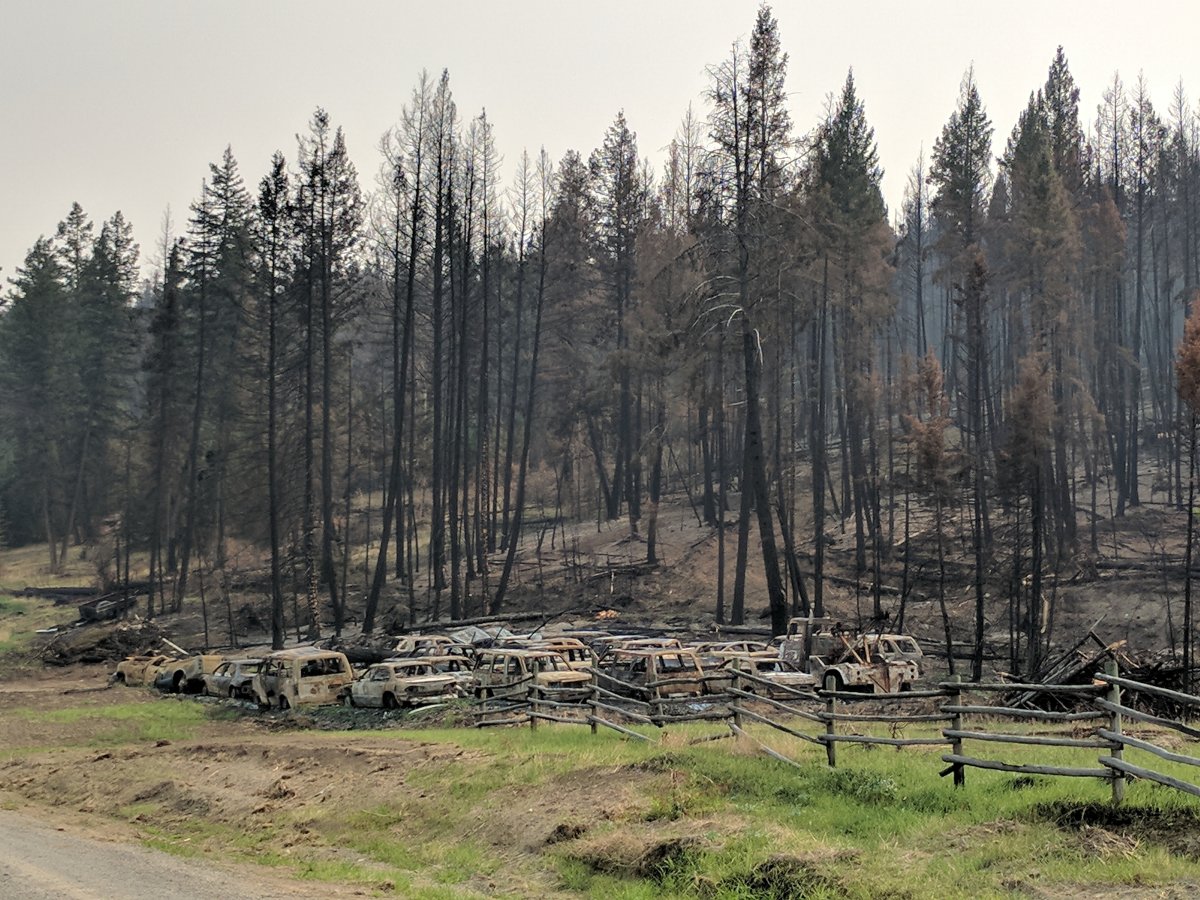With nearly 1.2 million hectares of forest scorched during this year’s record wildfire season, the province is now turning to what comes next.

But one UBC forestry expert says he’s worried about the impacts of plans to clear the land.
Coverage of B.C. wildfires on Globalnews.ca:
The Ministry of Forests, Lands and Natural Resources is preparing to issue expedited salvage logging permits to forestry companies and First Nations for B.C.’s burnt out woodlands.
That’s a process that UBC forestry Prof. David Andison said could save lumber, but at the cost of healthy forests in the future.
“Unfortunately it happens at a very delicate time in the stage of the development of the ecosystem. Immediately after a fire you’ve got sort of an opportunity for Mother Nature to reset the clock,” Andison said.
“There’s a whole community of vegetation that comes up before the forest actually takes hold. And it’s this community that sort of sets the stage for the next 10, 30, 50 years. And to interrupt that delicate phase with equipment, and skidding trees across it can compromise that process.”
Part of the problem, Andison said, is that in order for salvage logging to be viable, it needs to be done within 12 to 18 months.
He said that tight timeline means logging rules are often relaxed when it comes to using heavy equipment or building roads.
“It’s sort of ironic that at its most delicate phase we’re in the most rush to get the wood out,” he said.
“The short-term economic benefit would definitely favour harvest logging. The long-term ecological impacts, what you should do is just walk away.”
Andison admitted that his perspective may be unpopular, particularly when it comes to easing the economic pain of a bad fire season.
But he said the forest’s natural process of renewal has evolved over millions of years.
And while the natural process is slower than clearing and replanting, he said it will produce a result better adapted both to future fires, and threats like the pine beetle and climate change.















Comments